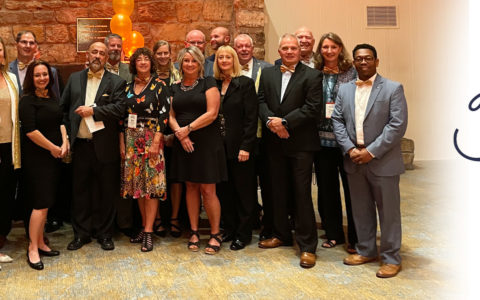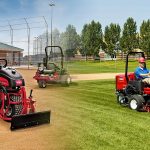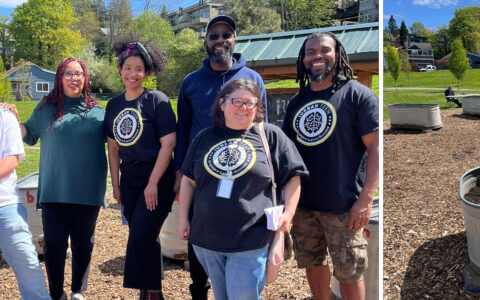Pennsylvania Organization Creates First-of-Its-Kind Resource for Park Maintenance Staff
Public parks and recreational green spaces bring important value to a community, from health and wellness benefits to driving economic growth and development. However, once the excitement of the grand opening is over, the need for ongoing maintenance remains — and many public agencies across the country lack the right resources to meet that need.
It’s a situation that prompted the Pennsylvania Recreation & Park Society (PRPS) to take action, and the result is a first-of-its kind initiative called the Pennsylvania Park Maintenance Institute.
Set to launch in 2020, the Institute will be a statewide resource to help local parks and recreation agencies with the latest tools, techniques and strategies for efficient park maintenance. It will also have support from Pennsylvania’s three Toro distributors — EH Griffith, Grassland Equipment and Irrigation Corp., and Turf Equipment and Supply Co. (TESCO). Ultimately, the goal of the Institute is to create safe, clean, accessible parks for communities to enjoy.
Background
With more than 6,000 local parks and recreation areas, Pennsylvania has a
lot of experience with both the benefits and challenges of maintenance. PRPS
supports those who own and manage these facilities.
Established in 1935, PRPS is a statewide nonprofit organization that provides professional development, technical assistance and advocacy to local park and recreation departments and volunteers. The organization is based in State College, Pa., and its mission is to “empower recreation and park professionals and citizen advocates to enhance life-enriching services for all Pennsylvanians.”

An Idea Is
Born
The idea for the Institute began in 2012. PRPS organized urban stakeholders
across the Commonwealth for day-long focus groups engaged in open discussions
about their ideas, needs and experiences in providing public parks and
recreation opportunities in their communities.
“Through these discussions, the major issue that came up was maintenance,” recalls Emily Gates, Director of Strategic Partnerships at PRPS. “Everybody likes to bring out the big pair of scissors and cut that ribbon. But the hard work comes after that in maintaining the park. It’s much easier to get funds to build or improve parks but very difficult to get the resources to maintain them. It costs much more to maintain parks over their lifetime than to build them.”
According to Gates, that’s what started the conversation about forming the Institute. Toro was instrumental in validating the idea for the Institute. Dana Lonn, retired Director of Toro’s Center for Advanced Turf Technology (CATT) (which is now Toro’s Center for Technology, Research & Innovation) and Paula Sliefert, Senior Marketing Manager at Toro, encouraged the Pennsylvania Recreation & Park Society and the Pennsylvania Department of Conservation & Natural Resources to pursue the quest for establishing the Institute as a model that could be adapted in other states as well. Their interest was the catalyst for moving forward.
Forming
Partnerships
Since then, it has been a process of working with many different agencies and
individuals to take the idea from concept to reality. PRPS worked with the
Pennsylvania Department of Conservation and Natural Resources and the
Pennsylvania Department of Community and Economic Development to secure funding
to develop a plan to create and sustain the Institute.
From there, PRPS worked in partnership with teams in parks and recreation, as well as community planners, financial advisers, marketing professionals, and active park and recreation practitioners from local and state park systems. The group’s consultant conducted outreach and research to explore the feasibility of establishing the Maintenance Institute and develop a plan of action to execute it.

During the entire process, PRPS also had informal conversations with Toro and its local distributors to discuss how they could get involved. “We felt early on that they would be a great partner for the Institute,” Gates adds. “As a company that’s been in existence for over 100 years, they have proven expertise — so now that we are able to actually partner with Toro in a formal way, it’s thrilling for us. We’re excited to be working with Pennsylvania’s local distributors.”
It’s clear the local Toro distributors share this excitement. A statement issued on behalf of all three companies notes: “This newly formed joint alliance between Turf Equipment and Supply Company, EH Griffith, Grassland and the Pennsylvania Park Maintenance Institute for the next several years is very exciting. It helps put us in closer contact with industry professionals. We have forged this partnership to strengthen our parks and recreation relationships and provide solutions to help our current and future customers maintain and enhance their facilities. Together with The Toro Company, we are always working collectively to introduce users to products that provide solutions and are environmentally friendly.”

A Hub of
Information
One of the main goals of the Institute is to create a central hub of
resources, so park maintenance staff can find the information they need in one
place. It’s currently under development, but will include articles, fact
sheets, instructional videos and other new and existing content.
Another benefit of this resource is that it will create a network of peers who can communicate with each other and share solutions. That starts with an advisory board made up of experts within the park and recreation maintenance and allied fields — people ranging from “boots on the ground” in the field to other invested partners like PRPS who will help drive the institute forward. Local Toro distributors will also serve as technical experts in areas such as turf maintenance, irrigation and snow removal, as well as up-and-coming trends and technology.
Future
Plans
As the Institute grows, additional professional development and technical
resources will be developed. The plan is to make a number of online resources
available, including live and recorded webinars and other videos. This gives
park maintenance staff the flexibility to learn on days when they can’t get out
and work due to weather events. One-day local or on-site training sessions are
another possibility, as well as an annual conference/expo event that brings
professionals together.
Gates believes the Institute is the first of its kind in the U.S. and hopes it will become a national model for other communities where park maintenance resources are challenged. “We feel we’re ahead of our time with this and we’re excited to be that model,” she notes.











